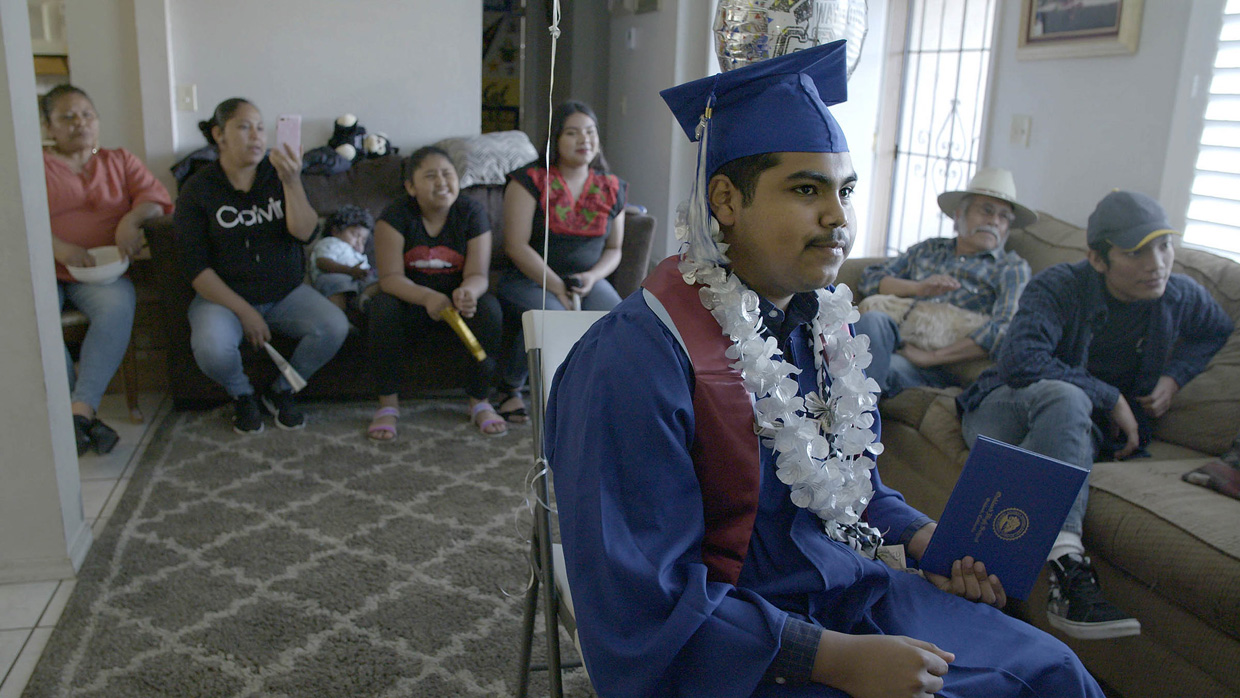 Back to selection
Back to selection
“I Became More Interested Than Ever in Trying to Understand My Daughter’s Story”: Director Peter Nicks | Homeroom
 Homeroom
Homeroom How did events of 2020—any of them—change your film, either in the way you approached it, produced it, post-produced it, or are now thinking about it?
The filmmaker often begins with a vision: maybe the inspiration of a song, a book, or a hot social issue. Or perhaps it is simply an extraordinary person whose story must be told. This process begins with inspiration and often yields to obsession as we go deeper into turning our inspiration into reality. And along this path it is not uncommon to meet up with that sly artist rigidity, a doppelgänger of our most intention self that wrestles between what we desire and what our film truly needs to be.
But—and especially for documentarians—eventually we must pack our bags for a departure from expectation. More than any other this film has moved me and shaped me in ways I could not have imagined when we began. Over the year in production I faced a family tragedy, uncertainty of the viability of completion, resolve to continue, the emergence of a global pandemic and finally a racial awakening that swept the globe.
The intention behind Homeroom was to complete my Oakland trilogy by turning to the education system, but to take a slightly different approach by examining the emotional lies of young people growing up today rather than examine the efficacy of the system itself. Part of the reason for this was that my daughter Karina had been battling anxiety and bipolar disease since she was a young girl. My wife and I had exhausted the resources of a broken mental health system to get her treatment. We were well resourced and had access to information (my wife works at Highland Hospital, where we filmed The Waiting Room) but could not seem to get help for our daughter. Along the way we realized how so many families without resources were raising children with undiagnosed and untreated mental health issues while also trying to navigate the education system. I was hoping the film could meet these kids, tell their story and remind us that they were worth fighting for.
Then shortly after we began filming, Karina succumbed to her disease, dying of a drug overdose shortly after we began filming. My family and the crew were shattered. Time stopped. But rather than cancel the film I decided to continue. My crew, friends and family held me up. The process of making the film offered a distraction and a way to process my own grief. I became more interested than ever in trying to understand my daughter’s story through the lives of these graduating seniors at Oakland High. But what transpired and where we landed was hardly where we started. And what was revealed about these young people at Oakland High offered a far more complex, revealing and inspiring story than I ever could have imagined. What they lost—what we all lost—and what was found in the end is something I trust will lift the audience’s whether they are suffering from a personal loss or this collective grief we all found ourselves in… on this path we never could have imagined.
(Check back daily during the festival — new answers are uploaded on the day of each film’s premiere. Read all the responses here.)
